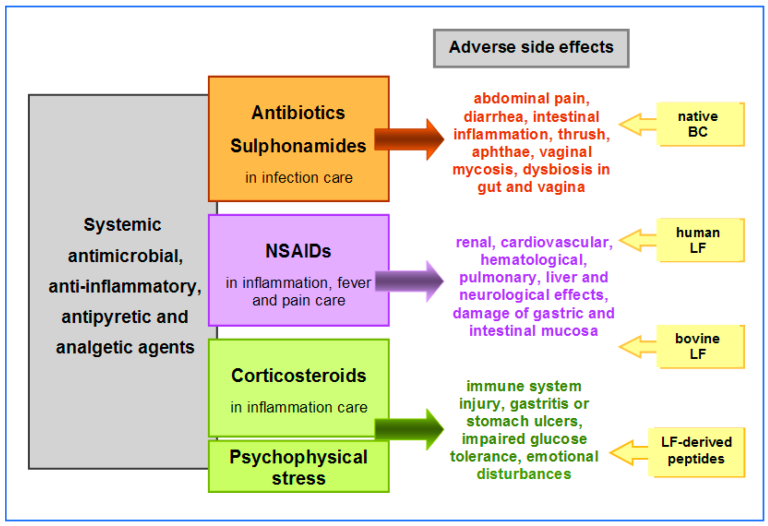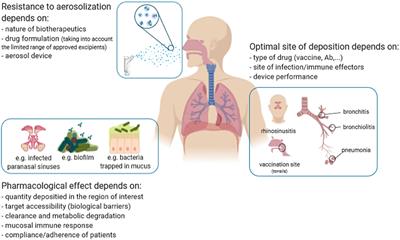Steroids And Mental Health: Unveiling The Complex Relationship
Steroids have long been a controversial topic in sports and fitness communities, with athletes and bodybuilders using them to enhance…
Steroids have long been a controversial topic in sports and fitness communities, with athletes and bodybuilders using them to enhance performance and achieve their desired physique. However, the use of steroids can have severe consequences on one’s mental health, leading to a complex and often misunderstood relationship between the two.
While steroids are known for their physical effects, such as increased muscle mass and strength, they can also cause significant changes in mood and behavior. From depression and anxiety to aggression and psychosis, the impact of steroids on mental health is a growing concern, shedding light on the need for a better understanding of this complex relationship.

Steroids and Mental Health: Unveiling the Complex Relationship
Steroids are synthetic versions of the hormone testosterone, which is responsible for the development of male sexual characteristics. They are widely used by athletes and bodybuilders to enhance their performance and build muscle mass. However, the use of steroids has been associated with a range of physical and mental health problems, including depression, anxiety, and psychosis. In this article, we will explore the complex relationship between steroids and mental health.
The Basics of Steroids
Steroids are classified as anabolic-androgenic steroids (AAS), which means that they are designed to mimic the effects of testosterone in the body. They work by increasing protein synthesis and muscle tissue growth, which leads to an increase in muscle mass and strength. Steroids can be taken orally or injected, and they are often used in cycles to maximize their effectiveness.
Benefits of Steroids
Steroids can have several benefits for athletes and bodybuilders. They can help to increase muscle mass, strength, and endurance, which can improve athletic performance. They can also help to reduce recovery time after workouts, which allows athletes to train harder and more frequently.
Side Effects of Steroids
However, steroids also have several side effects, including physical and mental health problems. Some of the physical side effects of steroids include acne, hair loss, and increased risk of heart disease and liver damage. Steroids can also cause mental health problems, such as depression, anxiety, and psychosis. These side effects can be particularly pronounced in individuals who abuse steroids or use them for long periods of time.
Steroids and Depression
Depression is a common mental health problem that affects millions of people worldwide. It is characterized by feelings of sadness, hopelessness, and a loss of interest in activities that were once enjoyable. Steroids have been linked to an increased risk of depression, particularly in individuals who use them for long periods of time.
How Steroids Affect the Brain
Steroids can have a direct impact on the brain, which can lead to an increased risk of depression. They can alter the levels of neurotransmitters in the brain, such as serotonin and dopamine, which are responsible for regulating mood. Steroids can also cause changes in the structure and function of the brain, which can lead to long-term mental health problems.
Steroids vs. Antidepressants
While steroids have been linked to an increased risk of depression, they are not a substitute for antidepressants. Antidepressants work by increasing the levels of neurotransmitters in the brain, which can help to alleviate symptoms of depression. Steroids, on the other hand, can actually worsen symptoms of depression in some individuals.
Steroids and Anxiety
Anxiety is another common mental health problem that can be associated with steroid use. It is characterized by feelings of nervousness, fear, and apprehension. Steroids can increase the risk of anxiety by altering the levels of neurotransmitters in the brain and causing changes in the structure and function of the brain.
How to Manage Anxiety with Steroids
If you are experiencing anxiety as a result of steroid use, there are several things you can do to manage your symptoms. You can try relaxation techniques, such as deep breathing or meditation, to help calm your mind and reduce feelings of anxiety. You can also talk to your doctor about medications that can help to alleviate symptoms of anxiety.
Steroids vs. Anxiety Medications
While steroids can increase the risk of anxiety, they are not a substitute for anxiety medications. Anxiety medications work by altering the levels of neurotransmitters in the brain, which can help to alleviate symptoms of anxiety. Steroids, on the other hand, can actually worsen symptoms of anxiety in some individuals.
Steroids and Psychosis
Psychosis is a serious mental health problem that can be associated with steroid use. It is characterized by a loss of contact with reality, which can include hallucinations and delusions. Steroids can increase the risk of psychosis by altering the levels of neurotransmitters in the brain and causing changes in the structure and function of the brain.
How to Manage Psychosis with Steroids
If you are experiencing psychosis as a result of steroid use, it is important to seek medical help right away. Your doctor may recommend medications to help alleviate symptoms of psychosis, such as antipsychotics. It is also important to stop using steroids and seek professional help to address the underlying mental health problems that may have contributed to the development of psychosis.
Steroids vs. Antipsychotics
While steroids can increase the risk of psychosis, they are not a substitute for antipsychotic medications. Antipsychotics work by altering the levels of neurotransmitters in the brain, which can help to alleviate symptoms of psychosis. Steroids, on the other hand, can actually worsen symptoms of psychosis in some individuals.
Conclusion
In conclusion, steroids have a complex relationship with mental health. While they can have several benefits for athletes and bodybuilders, they also have several side effects that can lead to mental health problems. It is important to use steroids responsibly and under the guidance of a medical professional to minimize the risk of mental health problems. If you are experiencing mental health problems as a result of steroid use, it is important to seek professional help right away to address the underlying issues and prevent long-term mental health problems.
Frequently Asked Questions
What are steroids?
Steroids are synthetic substances that are similar to the hormone testosterone. They are often used by athletes to increase muscle mass and improve athletic performance. Steroids can be taken orally, injected, or applied topically.
However, the use of steroids is illegal without a prescription and can have serious health consequences, including mental health problems.
What are the mental health effects of steroids?
The use of steroids can have a range of mental health effects, including mood swings, aggression, and depression. Steroids can also cause anxiety, insomnia, and paranoia. These effects can be particularly pronounced in people who have a history of mental health problems.
In some cases, the mental health effects of steroids can be severe and long-lasting. They can lead to substance abuse, addiction, and even suicide.
Why do people use steroids?
People use steroids for a variety of reasons, including to improve athletic performance, build muscle mass, and enhance their physical appearance. Steroids can also be used to treat medical conditions, such as delayed puberty and muscle wasting.
Unfortunately, many people who use steroids do so without a prescription and without fully understanding the risks involved. This can lead to serious health consequences, including mental health problems.
What are the risk factors for steroid-induced mental health problems?
There are several risk factors for steroid-induced mental health problems, including a history of mental illness, a family history of mental illness, and a history of substance abuse. Additionally, the dose and duration of steroid use can also increase the risk of mental health problems.
It is important to note that not everyone who uses steroids will experience mental health problems. However, anyone considering using steroids should be aware of the risks involved and should talk to a healthcare provider before starting use.
How can steroid-induced mental health problems be treated?
The treatment for steroid-induced mental health problems will depend on the specific symptoms and severity of the condition. In some cases, therapy and medication may be necessary to manage symptoms and prevent further complications.
It is important for anyone experiencing mental health problems related to steroid use to seek help from a healthcare provider as soon as possible. With proper treatment, many people are able to recover from steroid-induced mental health problems and improve their overall well-being.
Milos Sarcev Answers: Can Steroids Cause Depression For Bodybuilders?
In conclusion, the relationship between steroids and mental health is a complex one that is yet to be fully understood. While the use of steroids has been linked to several mental health issues, such as aggression, mood swings, and depression, the exact nature of this relationship is still unclear. What is clear, however, is that the use of steroids can have serious consequences for both physical and mental health.
Therefore, it is important for individuals who are considering using steroids to be fully aware of the potential risks and to weigh these against the potential benefits. Additionally, it is essential for healthcare professionals to be educated on the topic and to monitor patients who are using steroids for any signs of mental health issues.
Overall, more research is needed to fully understand the complex relationship between steroids and mental health. Until then, it is important for individuals to approach the use of steroids with caution and to prioritize their overall health and well-being.






